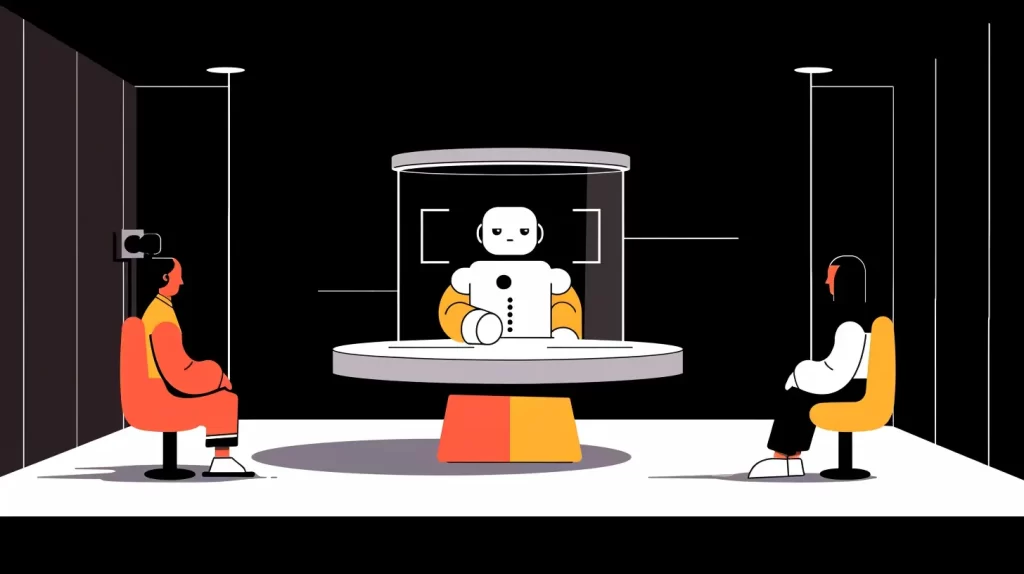As artificial intelligence continues to shape industries worldwide, it is now stepping into the realm of mediation and alternative dispute resolution (ADR). AI-powered tools are starting to bridge the gap between technology and human mediation, bringing innovative solutions to deeply rooted challenges in personal, political, and cultural conflicts. With the increasing complexity of social issues and the high costs of traditional mediation, AI-driven solutions like TheMediator.AI are proving to be game-changers in democratizing access to dispute resolution.
AI in Mediation: A New Era of Conflict Resolution
AI’s ability to process vast amounts of information swiftly and impartially has positioned it as a promising tool in mediation. Researchers from Google DeepMind recently demonstrated this with the development of the “Habermas Machine,” an AI designed to mediate complex group discussions. The tool is engineered to identify common ground among participants in polarized debates, helping groups move towards consensus (MIT Technology Review).
These advancements highlight AI’s potential to provide neutral, data-driven perspectives that help break down ideological barriers, encouraging productive communication in scenarios that traditionally foster division.
Key Benefits of AI in Mediation
- Impartiality: AI mediators, like TheMediator.AI, offer a neutral perspective, analyzing disputes based on facts rather than personal biases. By processing both parties’ inputs, AI can generate balanced summaries and propose fair resolutions.
- Cost-Effective: Traditional mediation services can be prohibitively expensive, often discouraging individuals from seeking third-party assistance for minor disputes. AI-powered platforms significantly reduce costs by automating the mediation process, making it accessible to a broader audience.
- Efficiency: AI tools accelerate the mediation process by quickly analyzing large amounts of data and providing insights that human mediators might take much longer to generate. For example, AI can summarize arguments, identify common ground, and generate targeted questions to guide parties toward a resolution (The Guardian).
- Confidentiality: One of the primary concerns surrounding AI in mediation is confidentiality. Platforms like TheMediator.AI prioritize user privacy by ensuring that all dispute discussions are handled with strict security measures, maintaining the integrity of sensitive information.
Challenges and Ethical Considerations
While the benefits of AI in mediation are evident, there are also challenges to consider. AI systems are not yet equipped to handle the emotional and relational dynamics of human conflicts comprehensively. Critics, such as Michael Bishop of Bishop Mediation & Arbitration, argue that AI’s lack of empathy could hinder its effectiveness in certain types of mediation where understanding emotional undercurrents is critical.
Moreover, ethical concerns about transparency and potential biases in AI decision-making remain prevalent. Since AI relies heavily on the data it is trained on, there is always the risk that biased or incomplete data could lead to skewed outcomes. For instance, smaller minority viewpoints might not be fully represented in the AI’s summaries, potentially leaving marginalized voices unheard.
The Future of AI in Dispute Resolution
Despite these challenges, the future of AI in mediation looks promising. As technology advances, AI’s role in resolving disputes will likely expand, particularly in areas like family law, small claims, and commercial disputes. While AI might not entirely replace human mediators, it will certainly enhance their capabilities, allowing for more efficient, inclusive, and accessible mediation processes.
The emergence of AI mediation tools like TheMediator.AI represents a shift towards a more democratized approach to conflict resolution, offering individuals an affordable and impartial means of resolving disputes without resorting to costly legal proceedings. As more people and organizations adopt these tools, AI’s impact on mediation will likely grow, fostering a more harmonious and just society.



